The first stop on our day trip to the Newbury, Ontario area was Skunk’s Misery. Using our new “Natural Areas of London and Region” guide, put out by Nature London, we selected an area in the map and drove down for the day. Since we left the house a bit early it was time for lunch once we pulled into the driveway near the one trailhead. There wasn’t any parking lot and Concession Road is pretty busy to have to park on. We were the only ones there so it wasn’t an issue. We pulled out our thermoses filled with hot soup and dipped our bread in it before we started our first small hike of the day. Maya also had a little warm soup to start her day off right.
At this location there is actually a large, detailed map of the region with all the hiking trails shown. The terrain style map references addresses for some of the access points but others you will have to find by sight. There are also no indicators of how long the trails are or how difficult they might be. We found it helpful to take a picture of the map to look at on our phones.
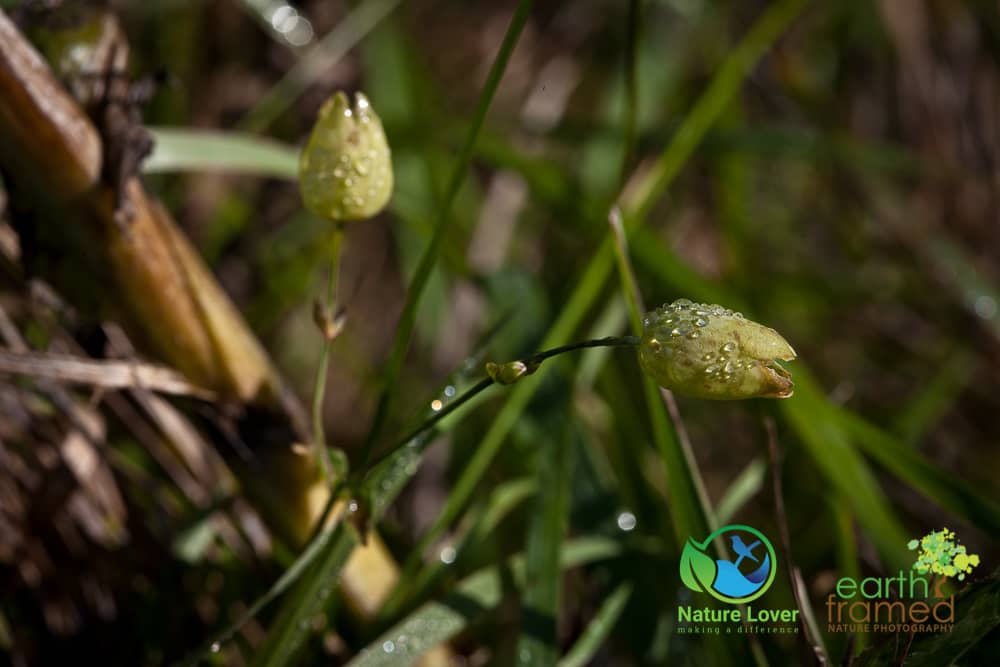 There was dew on the few wildflowers we spotted at the entrance to the trail. We also spotted some asters nearby.
There was dew on the few wildflowers we spotted at the entrance to the trail. We also spotted some asters nearby.
The trail started out through a stand of pines and it was obvious by the track that it had seen ATV traffic on a regular basis. The sun was filtering through the trees and the temperature was perfect for a fall day hike.
There were a variety of native ferns throughout the forest, including this Sensitive Fern. Also known as the bead fern, this species is very sensitive to frost, hence its name.
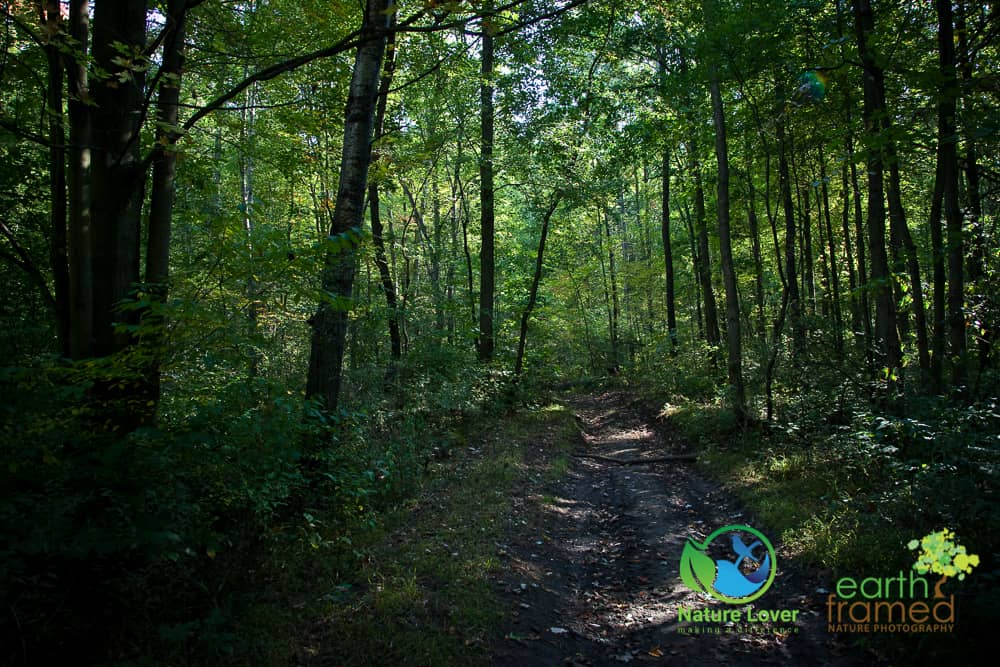 The trail turned muddy about a kilometre in and we turned back, since that was as long as Maya needed considering she would be going on several small hikes during the day.
The trail turned muddy about a kilometre in and we turned back, since that was as long as Maya needed considering she would be going on several small hikes during the day.
We then drove to Centreville Drive, which is parallel to Concession Drive, to find another access point that we would hike part of. 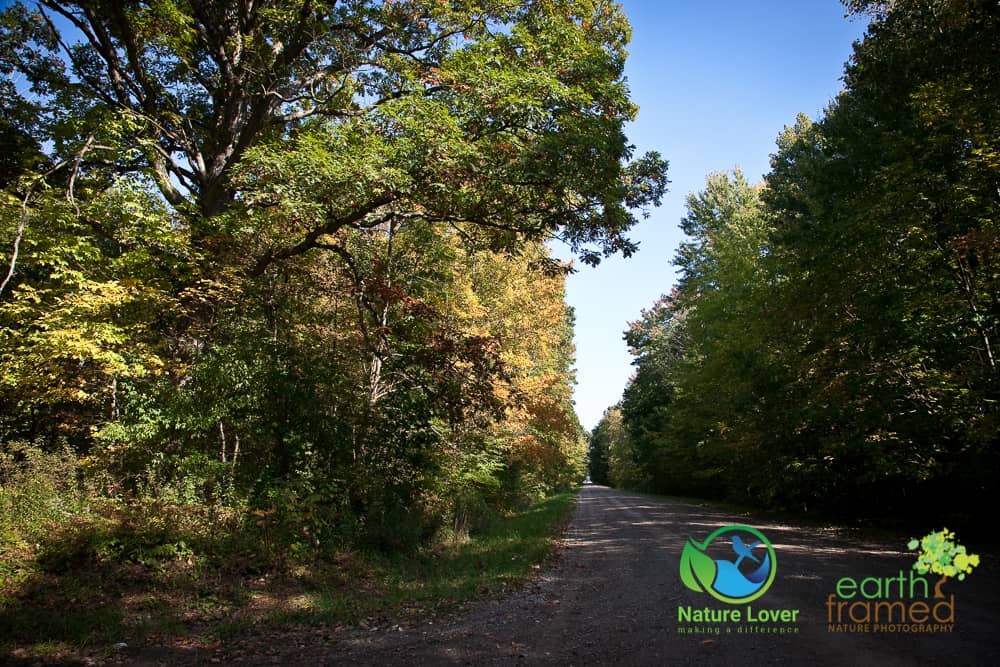 The drive itself was quite lovely with the trees in their fall colours and sections of the road had a canopy effect.
The drive itself was quite lovely with the trees in their fall colours and sections of the road had a canopy effect.
We found an obvious access point on the north side of the road and parked the truck on the shoulder, in the shade.
There were some large trees dispersed throughout the forest that Chitra often looked up at and there were various native species that she identified: American Chestnut, Tulip Tree, Sassafras, Swamp White Oak, Sugar Maple and Red Oak, to name a few.
We have a young version of this native tree in our front yard. The bark is a tell-tale sign that you are looking at the American hornbeam tree, also known as a blue-beech, ironwood or musclewood. Not only is this a very hard tree, the bark resembles a flexed muscle.
On both trails that we hiked we spotted an assortment of mushrooms and fungus. The ever abundant Turkey Tail mushrooms were seen on fallen logs along the trails, while Yellow Patches were found in the soil around living trees.
Towering oaks were all around us and, since they are the last to turn, they were still sporting their green leaves, unlike the tree in the background.
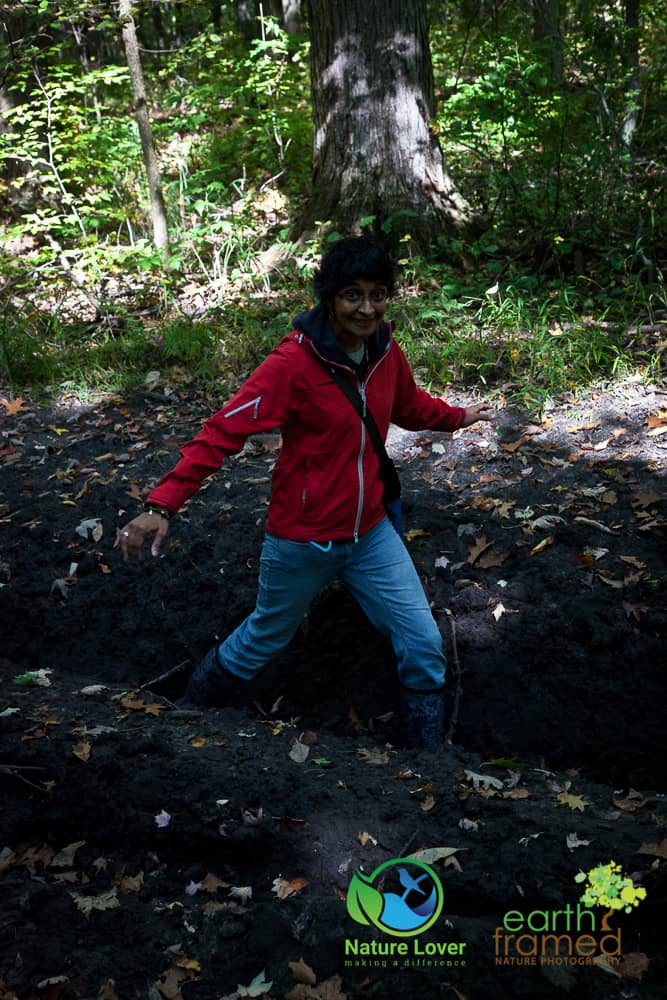 Along the trail there were an increasing number of areas that gave us the impression that there might be motorized vehicles on these trails. Thankfully, Chitra came prepared with her rubber boats and her adventurous spirit!
Along the trail there were an increasing number of areas that gave us the impression that there might be motorized vehicles on these trails. Thankfully, Chitra came prepared with her rubber boats and her adventurous spirit!
We had already spotted a couple of deer when we entered the woods, but there was proof that they frequently, and recently roamed freely throughout the area.
After we got to a large muddy patch we decided to turn back and make our way back to the vehicle. Close to the end of the trail we heard something large coming up behind us. We turned around to find 3 women on horseback. They asked us to take their picture, we gave the horses a bit of a scratch and then off they went.
Skunk’s Misery
Skunk’s Misery, or Mosa Forest, covers about 500 hectares in the County of Middlesex. Some of the forest is owned by the county, some by the Lower Thames Valley Conversation Authority and the rest is privately owned. The area is designated at a Carolinian Canada site and is protected from development for natural and scientific purposes. Mosa Forest has a lot of offer year round and you should definitely check it out when you are nearby.
Sources
“Mosa Forest / Skunk’s Misery « Lower Thames Valley Conservation Authority.” Lower Thames Valley Conservation Authority. N.p., n.d. Web. 28 Dec. 2016.


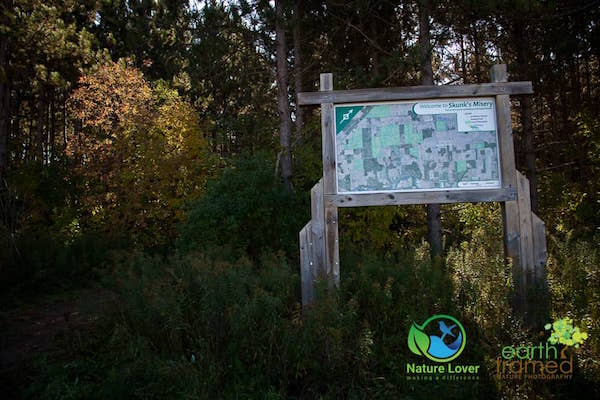
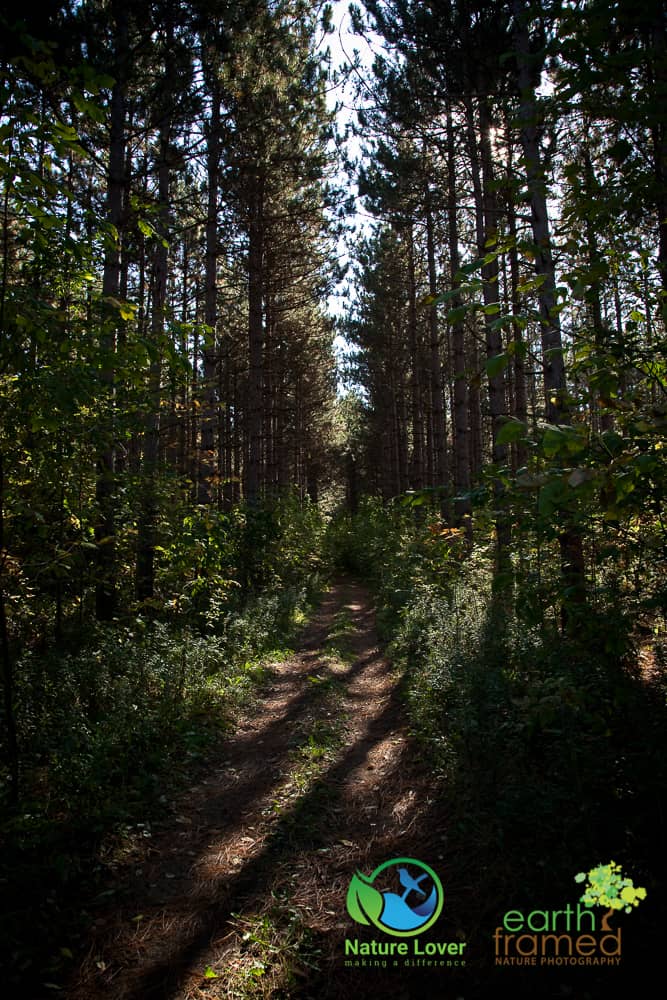
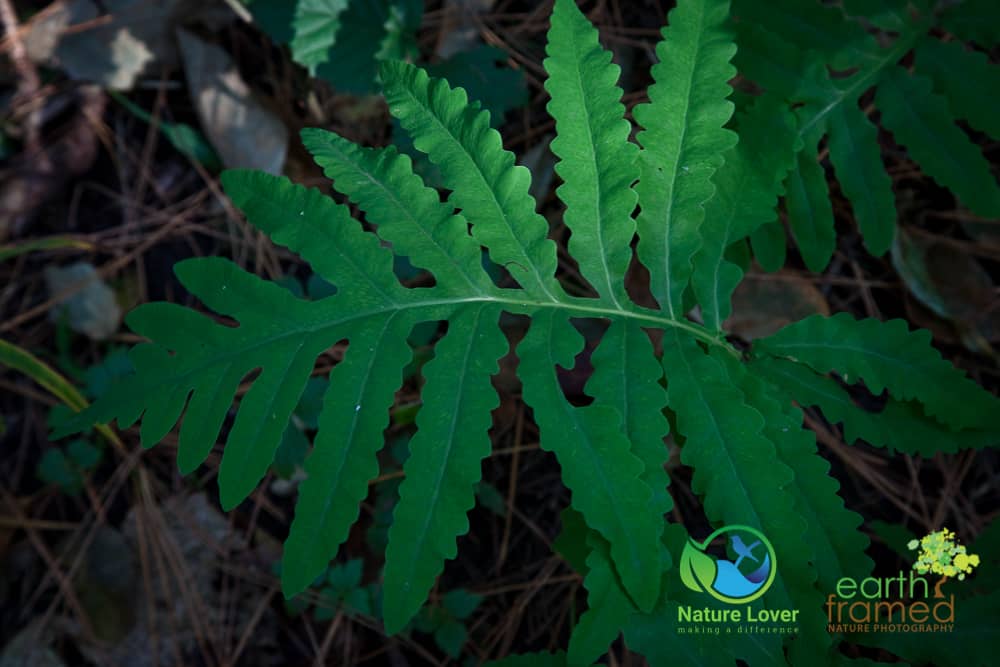
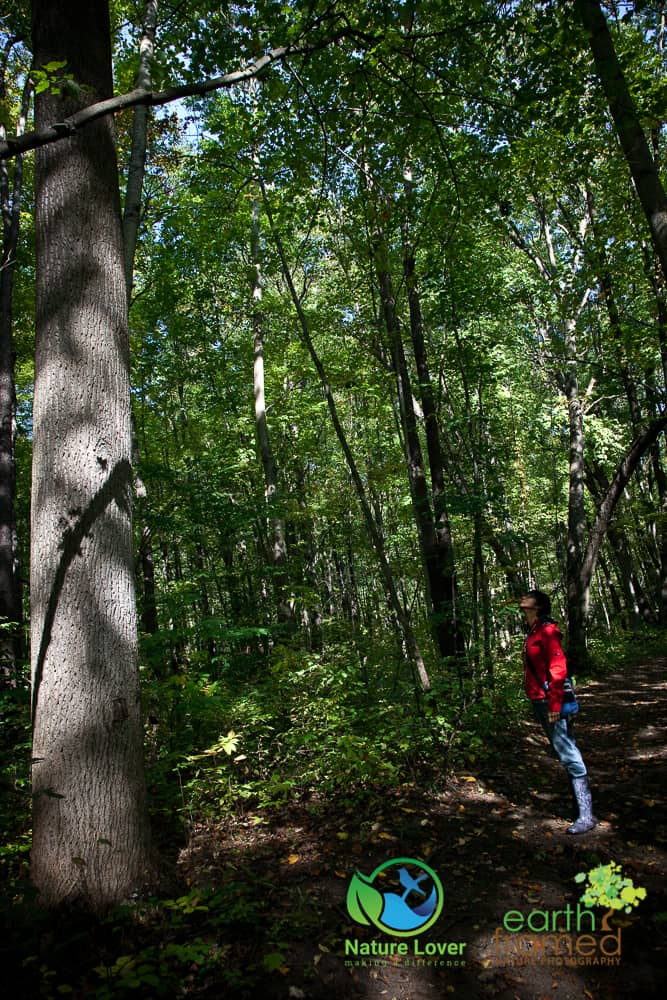
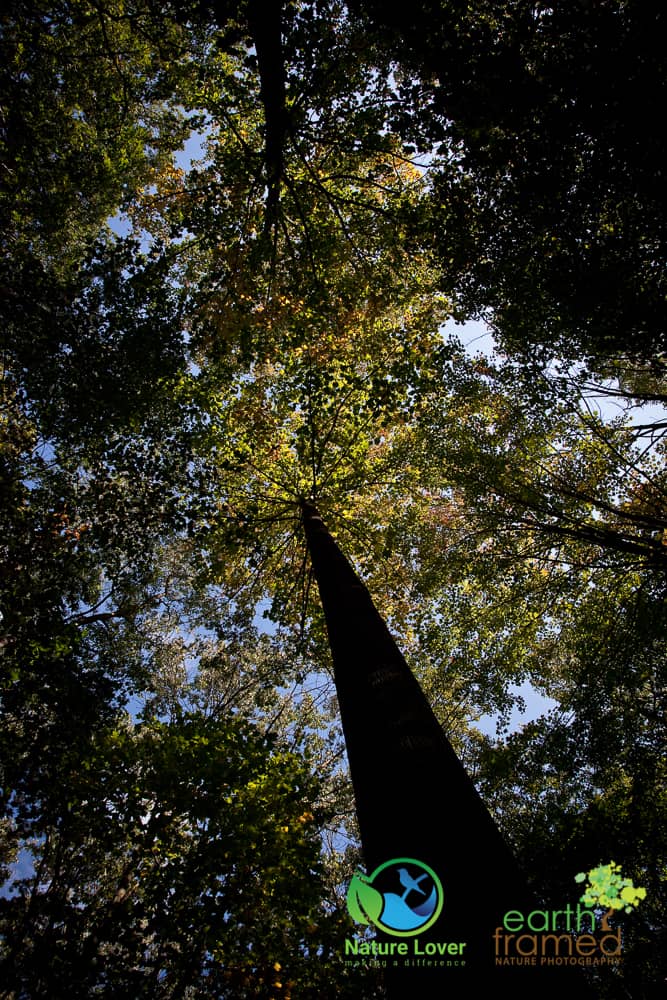
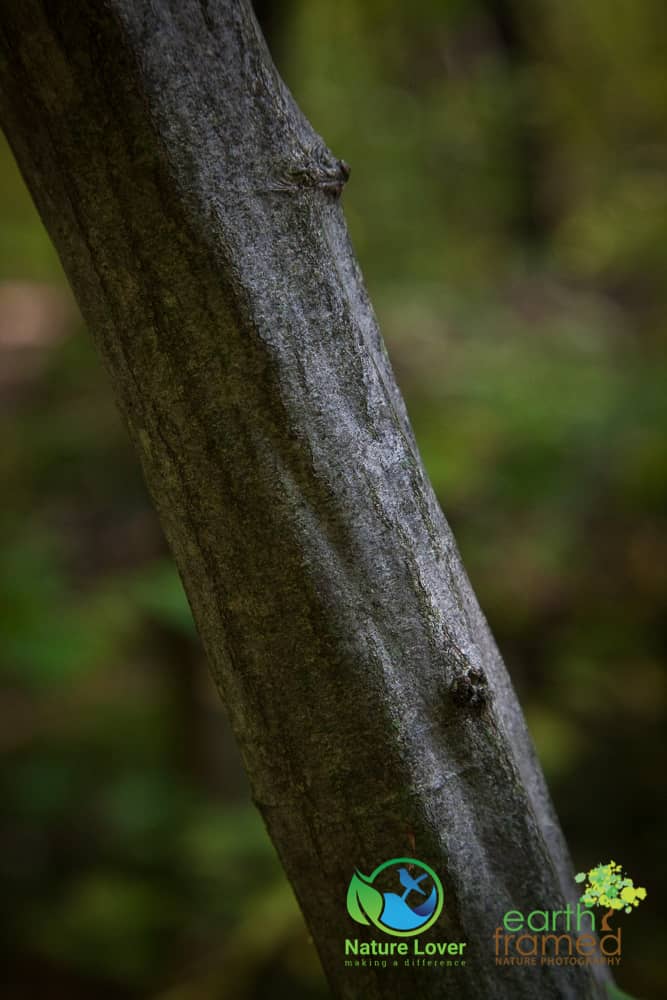
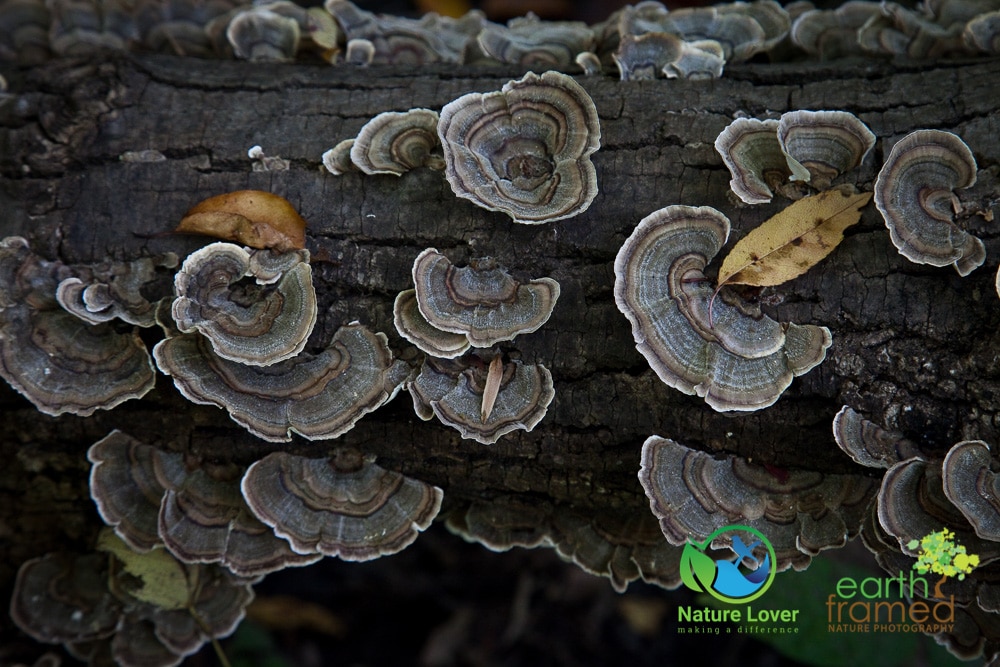
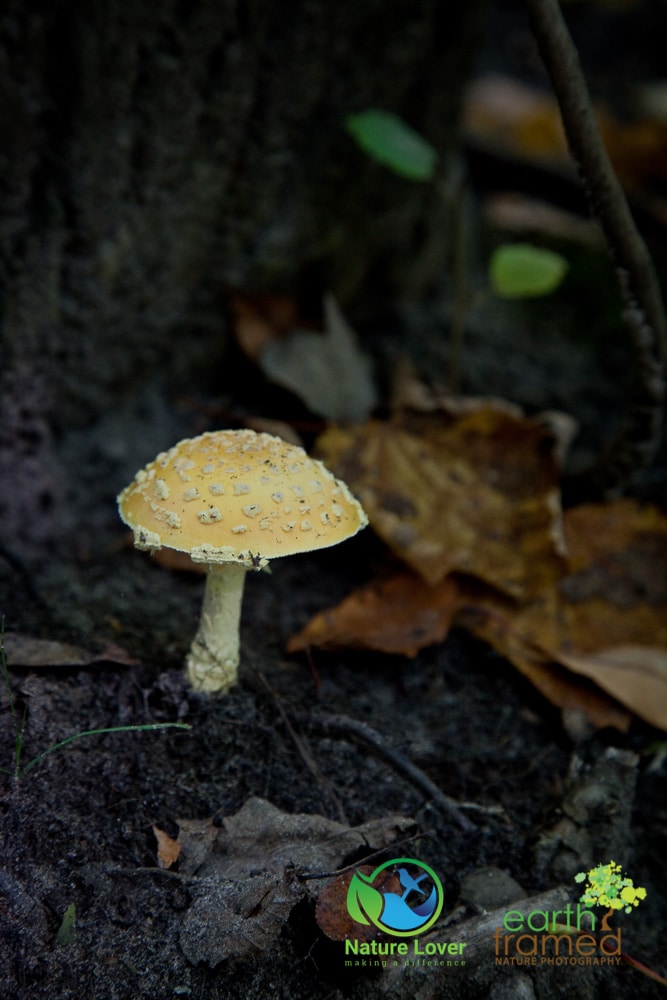
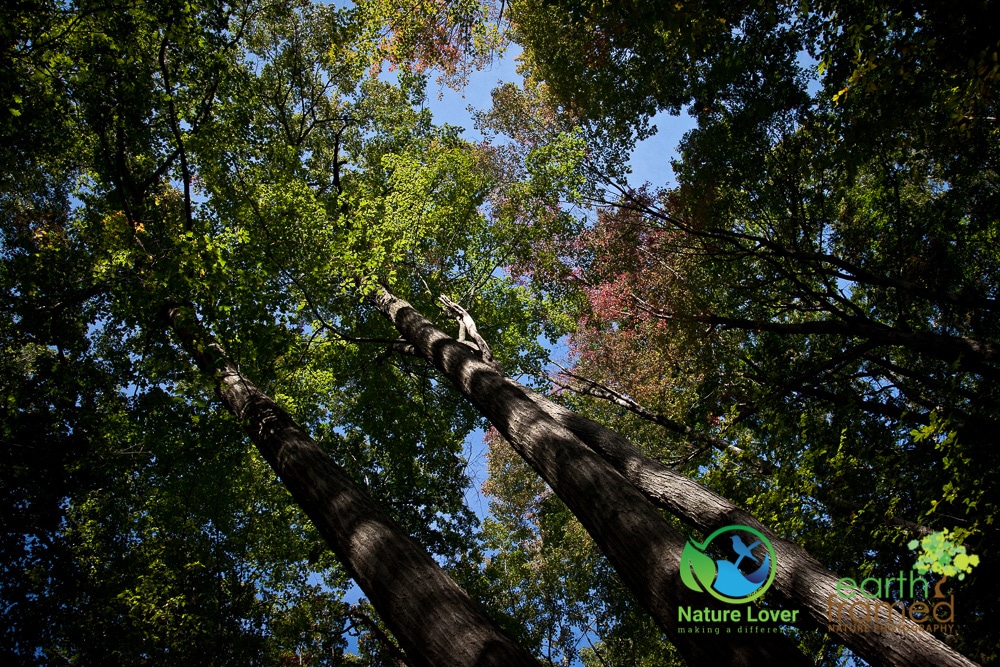
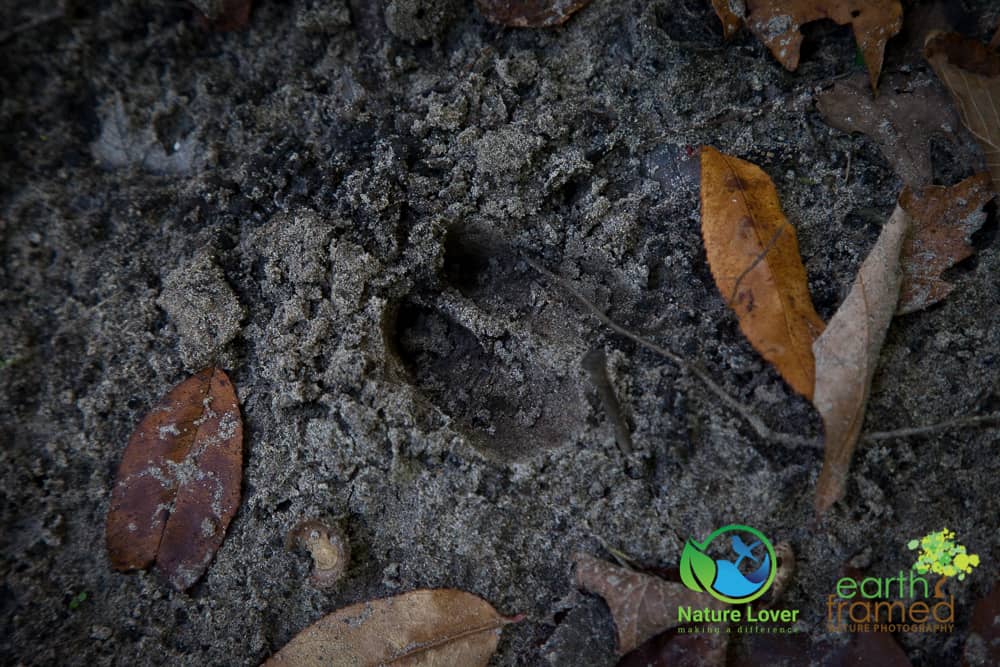
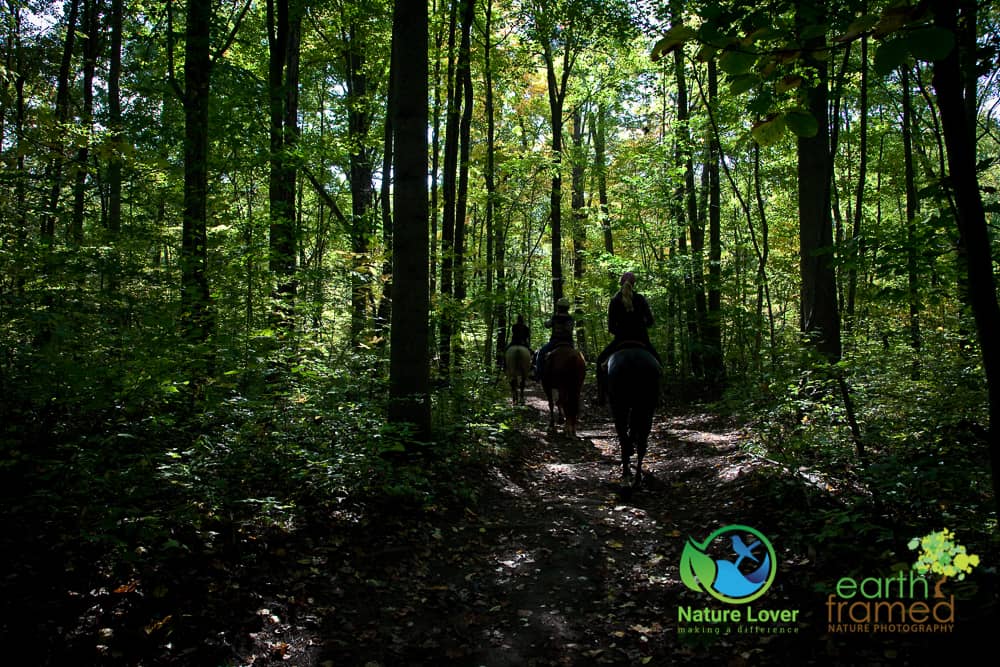
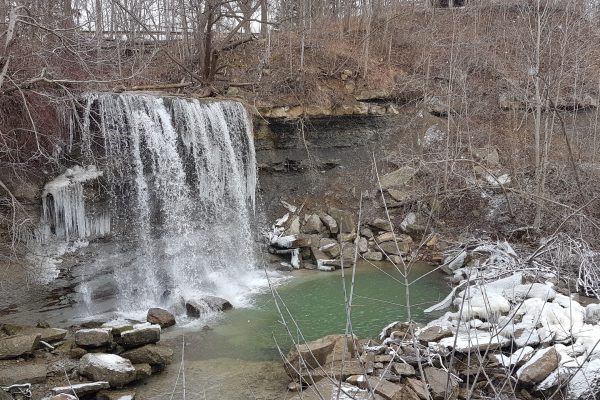
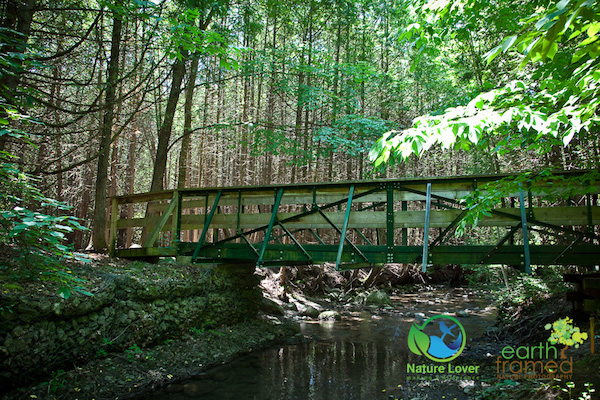
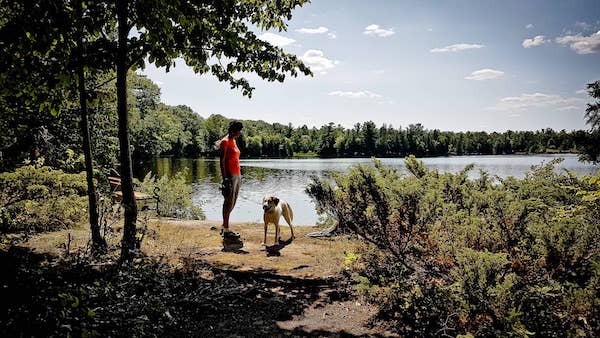
Comments(2)
Angie Harris says:
July 15, 2018 at 9:18 amCan you still ride 4 wheelers through these trails or is that not allowed anymore?
Tricia McLellan-Dath says:
August 6, 2018 at 9:46 amWe saw evidence of 4 wheelers and saw several horses on the trail we walked.